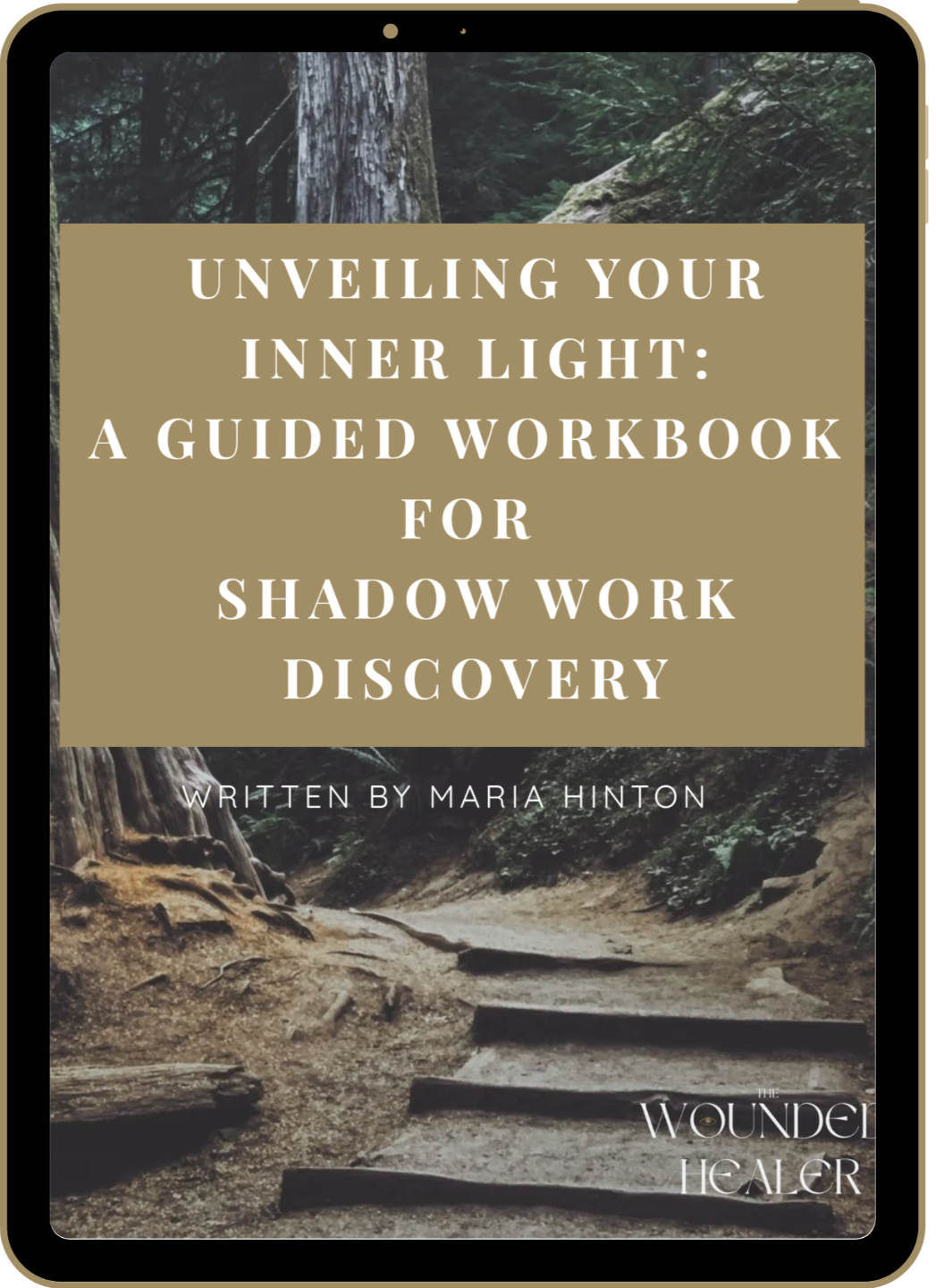Rebuilding Self-Trust After Toxic Relationships: A Path to Healing
Jun 16, 2025
The aftermath of a toxic relationship extends far beyond the pain of the relationship itself. Long after the external ties are severed, many survivors find themselves facing a deeper, more persistent wound: the profound loss of trust in themselves. This erosion of self-trust isn't just a side effect of toxic relationships—it's often their central purpose and most devastating consequence.
In healthy relationships, our sense of self is reflected back to us, validated, and strengthened. But in toxic dynamics, particularly those involving narcissistic abuse, our perception, judgment, and intuition are systematically undermined. We're taught through subtle and overt manipulation that we can't trust our own feelings, memories, or assessment of reality. Over time, this conditioning creates a profound disconnection from our inner guidance system—the very compass we need to navigate life and relationships.
As a trauma-informed practitioner working with women healing from narcissistic and toxic relationships, I've witnessed how this loss of self-trust becomes both the deepest wound and the most crucial area for healing. When you can't trust yourself, every decision becomes fraught with anxiety, every relationship a potential threat, and your very identity remains tentative and uncertain.
Yet I've also seen the transformative journey that unfolds as survivors begin the delicate process of rebuilding self-trust—reclaiming their inner authority and reconnecting with their authentic knowing.
This journey isn't about returning to who you were before the toxic relationship. It's about emerging as someone new: a person with deeper wisdom, clearer boundaries, and a more nuanced understanding of both yourself and relationships.
Understanding How Toxic Relationships Damage Self-Trust
Before exploring practices for rebuilding self-trust, it's important to understand exactly how toxic relationships undermine this fundamental relationship with yourself.
The Mechanics of Trust Erosion
Toxic relationships, particularly those with narcissistic individuals, employ several mechanisms that specifically target your self-trust:
Gaslighting: Perhaps the most direct assault on self-trust, gaslighting causes you to question your perception of reality. When someone consistently denies your experiences ("That never happened"), minimizes your feelings ("You're overreacting"), or rewrites shared history, you begin to doubt your own memory and judgment.
Intermittent Reinforcement: The unpredictable cycle of reward and punishment creates profound cognitive dissonance. You can never fully predict what will bring praise or criticism, creating a state of constant uncertainty about your own actions and choices.
Moving Goalposts: No matter what you do, it's never quite right or enough. This constantly shifting standard makes it impossible to trust your ability to assess situations or make good decisions.
Isolation: By separating you from friends and family who might validate your perceptions, toxic partners ensure their reality becomes the dominant narrative, further undermining your trust in your own perspective.
Trauma Bonding: The intense emotional attachment formed through cycles of abuse and reconciliation creates confusion about your own feelings and needs, making it difficult to trust your emotional responses.
The Neurobiological Impact
This trust erosion isn't just psychological—it creates actual changes in your brain and nervous system:
- The prefrontal cortex (responsible for decision-making) becomes overwhelmed by chronic stress
- The amygdala (fear center) becomes hyperactive, creating anxiety about trusting your own judgment
- Stress hormones interfere with memory consolidation, making you more vulnerable to having your memories questioned
- Neural pathways associated with confidence and decision-making become weakened through disuse
Understanding these mechanisms helps explain why rebuilding self-trust isn't simply a matter of deciding to trust yourself again. It requires a holistic approach that addresses both the psychological conditioning and the neurobiological patterns created by the toxic relationship.
Seven Practices for Rebuilding Self-Trust After Toxic Relationships
The journey back to self-trust unfolds gradually through consistent, compassionate practice. These approaches create the conditions for your natural capacity for self-trust to reemerge and strengthen.
1. Document Your Reality to Counter Gaslighting's Legacy
The Practice:
- Keep a simple journal of events, conversations, and your perceptions
- Record specific details: what was said, what happened, how you felt
- Review these entries periodically, validating your experience
- Notice patterns in your perceptions and their accuracy
- Pay special attention to instances where your initial assessment proved correct
- Create a section specifically for recording decisions that worked out well
Why It Works: Toxic relationships thrive on reality distortion, leaving you unsure what actually happened and how to interpret events. This practice creates a concrete record that helps counter the self-doubt installed by gaslighting and manipulation. Over time, you'll likely notice patterns that reveal the accuracy of your perceptions and judgments.
As one client shared, "Reading my journal entries from six months ago was eye-opening. I could see how often my initial instincts were right, even when I doubted myself at the time. It's like finding evidence that I've been more trustworthy than I gave myself credit for."
2. Reconnect With Your Body's Wisdom
The Practice:
- Set aside 5-10 minutes daily for a body scan meditation
- Starting at your feet and moving upward, bring attention to each part of your body
- For each area, simply notice any sensations without judgment
- Pay particular attention to your gut, heart, and throat—common centers of intuitive signals
- When you notice a sensation, get curious: What might this feeling be communicating?
- Begin to track correlations between bodily sensations and situations in your life
Why It Works: Toxic relationships often create profound disconnection from bodily wisdom. You learn to ignore physical signals that contradict the toxic narrative or that might lead you to protect yourself. This practice rebuilds the neural pathways between conscious awareness and physical sensations, helping you recognize and trust your body's signals as valuable information.
This practice is a gentle revolution—reclaiming the wisdom of your body as a trustworthy guide.
3. Practice Micro-Decisions to Build Decision Confidence
The Practice:
- Identify small, low-risk decisions you can make daily (what to eat, what to wear, how to spend 30 minutes of free time)
- Before each decision, check in with yourself: What do I truly want in this moment?
- Make the decision based on your authentic preference, not what you "should" want
- Notice any anxiety or doubt that arises, acknowledging it without letting it override your choice
- After the decision, reflect: How did following my preference feel? What did I learn?
- Gradually increase the significance of the decisions as your confidence grows
Why It Works: Toxic relationships often leave you feeling paralyzed around decisions, doubting your ability to choose wisely. This practice rebuilds decision-making confidence through graduated exposure, starting with inconsequential choices and progressively tackling more significant decisions.
The key is focusing on the process rather than the outcome—learning to identify and honour your authentic preferences regardless of whether the decision leads to a "perfect" result. Over time, this creates new neural pathways associated with confident choice-making.
4. Create a Personal Validation Practice
The Practice:
- Identify specific areas where self-doubt is strongest (your perceptions, feelings, decisions, etc.)
- For each area, create personalized validation statements:
- "My feelings are valid information about my experience"
- "I can trust my perception of events"
- "My needs and boundaries are legitimate"
- Write these statements on cards or in your phone for easy access
- Practice speaking these validations aloud when doubt arises
- Notice resistance to these statements and approach it with curiosity
Why It Works: Toxic relationships install a harsh inner critic that continues the trust erosion even after the relationship ends. This practice directly counters that internalized voice, gradually replacing it with self-validation that supports rather than sabotages your self-trust.
5. Calibrate Your Trust Through Relationship Mapping
The Practice:
- Create a list of people currently in your life
- For each person, reflect on how safe and trustworthy they've proven to be
- Categorize them into trust circles: innermost circle (most trusted), middle circle (somewhat trusted), outer circle (limited trust)
- Identify specific behaviors that earn someone a place in your inner circle
- Notice patterns in who you tend to trust too quickly or not enough
- Use this awareness to calibrate your trust in new relationships
Why It Works: After toxic relationships, many survivors swing between indiscriminate trust and inability to trust anyone. This practice helps you develop nuanced discernment about who deserves different levels of trust based on their actual behaviour, not your fears or hopes.
By explicitly identifying what trustworthy behaviour looks like, you also clarify the standards you hold for yourself—reinforcing that trustworthiness is built through consistent actions, not perfect performance or people-pleasing.
6. Develop a Mistakes Practice
The Practice:
- Acknowledge that making mistakes is an inevitable part of being human
- When you make a mistake, practice a self-compassionate response:
- Acknowledge what happened without minimizing or catastrophizing
- Recognize the specific circumstances and factors involved
- Identify what you've learned from the experience
- Consider how you might approach similar situations differently
- Create a "lessons learned" journal to track insights from mistakes
- Notice how your relationship with mistakes evolves over time
Why It Works: Fear of making mistakes often paralyzes survivors of toxic relationships, who were punished or shamed for any perceived failure. This practice helps you develop a healthier relationship with imperfection, recognizing that mistakes are valuable learning opportunities rather than evidence of trustworthiness.
As you practice responding to your own mistakes with compassion rather than condemnation, you build the foundation for deeper self-trust—knowing that you can handle things even when they don't go as planned.
7. Celebrate Your Inner Wisdom
The Practice:
- Create a dedicated "wisdom journal" or section in your existing journal
- Record instances when you:
- Honoured your intuition
- Set a boundary that served you well
- Made a decision that aligned with your values
- Recognized a pattern before it became problematic
- Trusted yourself despite external pressure
- Review this journal regularly, especially during periods of self-doubt
- Create rituals to celebrate these moments of alignment with your inner wisdom
Why It Works: Toxic relationships train you to focus on your mistakes and doubts while dismissing your successes and insights. This practice intentionally counters that conditioning by creating a record of your wisdom and trustworthiness. Over time, this helps shift your self-perception from someone who can't be trusted to someone with valuable inner guidance.
The celebration aspect is particularly important—many survivors were punished for showing confidence or pride in themselves. Reclaiming your right to acknowledge and celebrate your wisdom is a powerful act of self-reclamation.
Common Challenges in Rebuilding Self-Trust
The path back to self-trust isn't always straightforward. Understanding common challenges can help you navigate them with greater compassion and effectiveness.
Challenge: The Inner Critic's Resistance
As you begin practices to rebuild self-trust, you may notice increased activity from your inner critic—that internalized voice that echoes the toxic messages from your past relationship.
Supportive Approach:
- Recognize this resistance as an expected part of the process, not a sign of failure
- Name the critical voice when it arises: "This is the voice of past conditioning, not my truth"
- Notice if the critic sounds like specific people from your past
- Respond to criticism with the compassion you would offer a friend
- Consider working with a trauma-informed therapist to address deeper patterns of self-criticism
Challenge: Trust Paralysis
Some survivors find themselves stuck in a state of trust paralysis—unable to trust themselves or others, leading to isolation and inability to move forward in life.
Supportive Approach:
- Recognize that trust isn't binary but exists on a spectrum
- Start with very small acts of self-trust in low-risk situations
- Use external validation as a bridge while rebuilding internal trust
- Focus on evidence-based trust rather than blind faith in yourself or others
- Be patient with the process—trust rebuilds gradually through consistent experience
Challenge: Retraumatization Through New Relationships
As you begin to trust yourself again, you may enter new relationships that trigger old wounds, potentially reinforcing the belief that you can't trust your judgment.
Supportive Approach:
- Remember that healing isn't linear—setbacks are part of the process
- Use difficult experiences as information, not evidence of failure
- Identify specific red flags you missed and what you can learn from them
- Distinguish between responsibility and blame—you can take responsibility for your growth without blaming yourself for others' behavior
- Seek support when navigating triggering relationships rather than isolating with shame
Challenge: The Vulnerability of Self-Trust
Paradoxically, beginning to trust yourself again can feel frightening and vulnerable after you've adapted to constant self-doubt.
Supportive Approach:
- Acknowledge the courage it takes to reclaim your inner authority
- Start with trusting yourself in private before making major public declarations
- Build a support system that validates your journey toward self-trust
- Recognize that vulnerability is the pathway to authentic connection, both with yourself and others
- Practice self-compassion for the discomfort that arises as you step into greater self-trust
Self-Trust as a Foundation for Healing and Growth
As you rebuild self-trust after toxic relationships, you may discover that this journey extends beyond simply improving decision-making or avoiding future manipulation. For many survivors, reclaiming self-trust becomes the foundation for deeper healing and growth in multiple life dimensions.
Authentic Relationships
When you trust yourself, you can:
- Recognize red flags earlier in relationships
- Set and maintain boundaries that reflect your true needs
- Express your authentic thoughts and feelings without excessive filtering
- Choose relationships based on genuine connection rather than fear or obligation
- Trust your discernment about others' trustworthiness
This creates the conditions for relationships characterized by mutuality and respect rather than control and manipulation.
Purposeful Direction
Self-trust enables you to:
- Make decisions aligned with your values rather than others' expectations
- Take calculated risks toward meaningful goals
- Navigate uncertainty with greater confidence
- Recognize and pursue opportunities that resonate with your authentic self
- Trust the timing and unfolding of your unique path
This allows your life direction to emerge from your inner wisdom rather than being dictated by fear or external validation.
Emotional Resilience
As self-trust strengthens, you develop:
- Greater capacity to sit with difficult emotions without being overwhelmed
- Confidence in your ability to handle life's challenges
- Reduced anxiety about making "wrong" decisions
- Ability to distinguish between intuitive warnings and fear-based reactions
- Trust in your capacity to recover from setbacks
This resilience doesn't mean avoiding pain or difficulty, but rather trusting your ability to move through challenges with your sense of self intact.
The Wounded Healer's Perspective
There's a profound alchemy that happens when we reclaim what was damaged through trauma. Many survivors discover that their journey of rebuilding self-trust becomes a source of wisdom and offering to others—the essence of the wounded healer archetype.
Your experience of losing and reclaiming self-trust gives you unique insight into this fundamental aspect of human experience. This lived understanding—different from theoretical knowledge—allows you to recognize similar patterns in others and offer compassionate guidance based on your own healing journey.
This doesn't mean you need to become a formal healer or guide. Simply living from your reclaimed self-trust creates ripples that affect everyone around you. Your boundaries, based on inner knowing rather than fear or obligation, show others what healthy self-respect looks like. Your decisions, aligned with your values rather than people-pleasing, inspire others to trust themselves more deeply.
As Brené Brown writes, "When we deny our stories, they define us. When we own our stories, we get to write a brave new ending." Your journey of rebuilding self-trust is about owning your story—acknowledging the wounds of the toxic relationship while refusing to let them define your future.
The self-trust that was damaged in your toxic relationship wasn't destroyed—it was waiting for safe conditions to reemerge and grow stronger. That capacity for self-trust—your birthright—carries wisdom not just for your healing journey but for our world that so desperately needs people connected to their inner authority and truth.
If you're working to rebuild self-trust after toxic relationships and seeking support for your healing journey, I invite you to explore the trauma-informed healing services at The Wounded Healer. Through Reiki, somatic practices, and holistic healing approaches, we create a safe container for your journey from wounded to whole.







